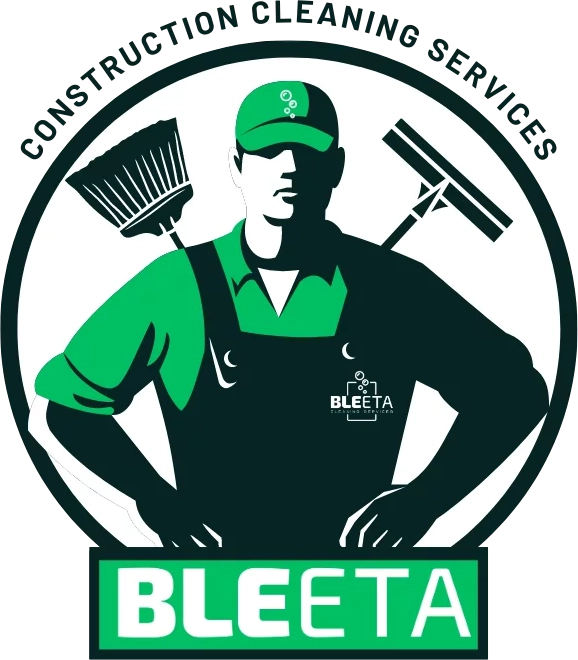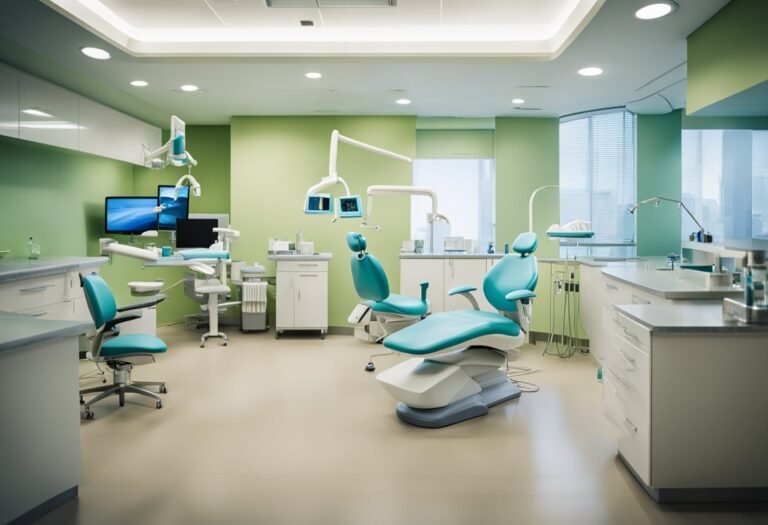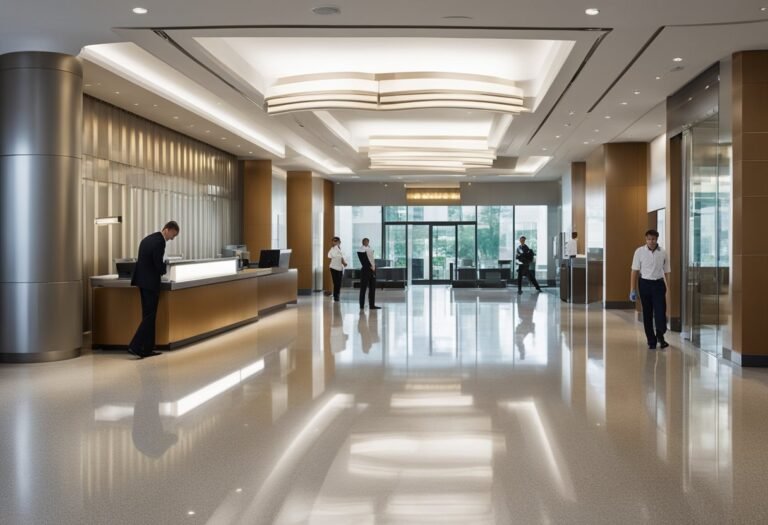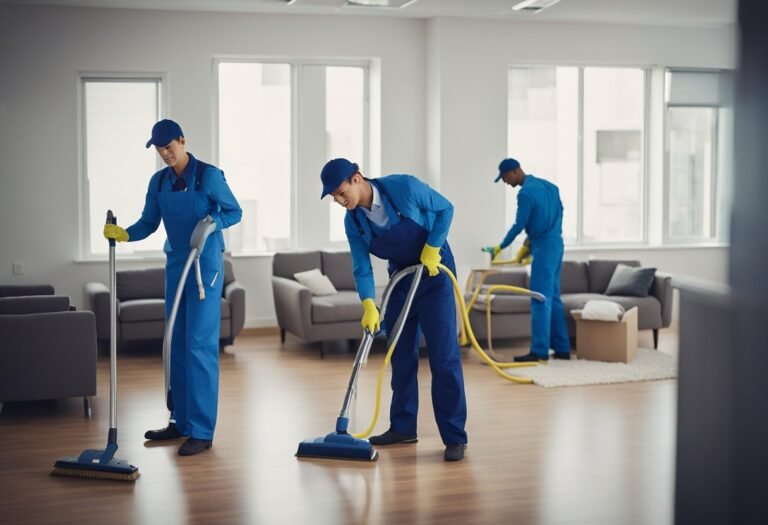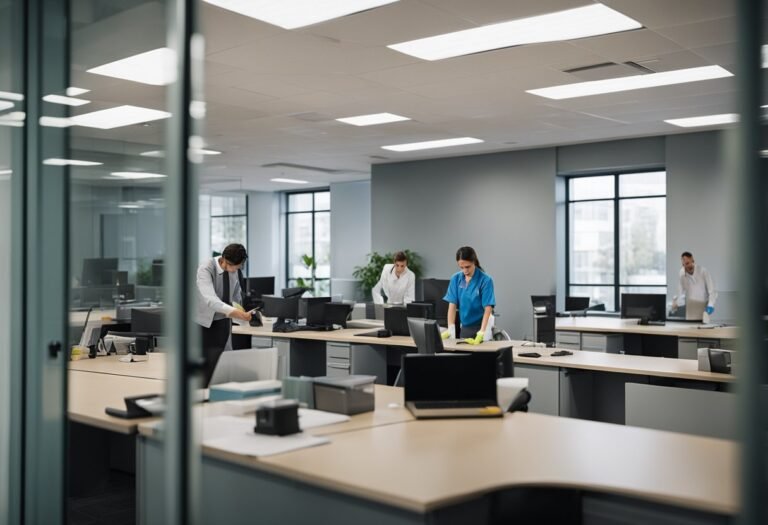Commercial cleaners play an essential role in maintaining the health, safety, and aesthetics of workplaces and public spaces. By ensuring environments are not only visibly clean but also sanitized, they help reduce the spread of disease and create a more appealing space for both employees and customers. Their services range from routine cleaning to specialized deep-cleaning procedures, tailored to meet the unique needs of each business.
It is widely acknowledged that cleanliness can directly impact productivity and morale. Employees tend to be more efficient in a clean and organized setting. Furthermore, regular cleaning extends the lifespan of assets like carpets, floors, and fixtures by preventing the accumulation of dirt and wear. Commercial cleaners employ professional products and equipment to achieve a higher standard of cleanliness, which is often unattainable with regular in-house cleaning.
Moreover, they contribute significantly to the first impression a business makes. Well-maintained premises reflect professionalism and attention to detail, inspiring confidence in clients and associates. As such, the role of commercial cleaners transcends the basic task of cleaning; they are integral to the maintenance of a business’s brand image and reputation. Their meticulous efforts support business operations and contribute to the overall success and functionality of commercial enterprises.
Essential Role in Public Health
Commercial cleaners play a pivotal role in protecting community health by implementing rigorous cleaning practices that limit the spread of pathogens.
Disease Prevention
Pathogen Reduction: Commercial cleaners use disinfectants to effectively reduce the presence of bacteria, viruses, and fungi on surfaces. This is critical in settings like hospitals, schools, and public transportation, where disease transmission rates can be high.
- High-Traffic Areas: They frequently focus on areas that are touched often, such as door handles, light switches, and elevator buttons, using approved chemicals that kill or deactivate pathogens.
Sanitation Standards
Compliance with Health Protocols: Ensuring that facilities meet health code regulations is a core responsibility of commercial cleaners. They are trained to follow protocols that adhere to national and provincial sanitation standards.
- Regular Inspections: Facilities undergo regular inspections to maintain a clean environment. Cleaners must document their processes, often using checklists that itemize tasks like waste disposal and restroom sanitization.
Economic Impact of Commercial Cleaning
The commercial cleaning industry not only ensures hygienic work environments but also significantly contributes to economic vitality. It supports business operations and influences customer perceptions, both crucial for sustained economic health and growth.
Business Productivity
Commercial cleaning services directly impact productivity in the workplace. Clean environments reduce the incidence of illness, thus lowering employee absenteeism. Statistics from the Canadian Centre for Occupational Health and Safety suggest that well-maintained workplaces can result in a 2% decrease in sick leave. This improvement in workforce availability can lead to amplified outputs and business efficiency.
Additionally, a systematic approach to cleanliness means employees aren’t required to manage these tasks themselves, allowing them to concentrate on their core responsibilities. For instance, if a company employs 100 people, redirecting just one hour from cleaning to productive work per employee per week can result in an additional 5,000 hours of productivity annually.
Customer Impressions
First impressions are vital in the commercial world, and cleanliness plays a key role in shaping them. Customers and clients are more likely to engage with businesses that maintain a polished and professional appearance. Surveys indicate that 71% of Canadians consider cleanliness important when patronizing businesses.
A clean environment implies attention to detail and high standards of operation, fostering trust and confidence in the business’s services. For example, in the hospitality sector, cleanliness can affect hotel ratings, directly linking to room rates and occupancy levels, showcasing a clear economic impact.
Environmental Benefits
Commercial cleaners play a pivotal role in implementing environmentally friendly cleaning solutions and reducing waste, which significantly benefit the ecosystem.
Sustainable Practices
Companies that provide commercial cleaning services are increasingly adopting sustainable practices. This includes using eco-friendly cleaning products free from harmful chemicals, which are biodegradable and cause minimal environmental impact. Additionally, commercial cleaners make use of microfiber cleaning cloths and mops that can be reused, thus diminishing the need for disposable products that contribute to landfill waste.
Waste Reduction
Commercial cleaners are at the forefront of waste reduction efforts. They typically follow protocols to separate recyclable materials from non-recyclable waste, ensuring proper waste management. An important practice includes:
- Streamlined disposal methods: Ensuring that waste is disposed of in the most efficient manner, reducing the frequency of waste pick-up and the associated emissions from waste disposal vehicles.
Advancements in Cleaning Technologies
The evolution of cleaning technologies has led to significant improvements in product innovation and the introduction of automation, enhancing the cleaning industry’s effectiveness and efficiency.
Innovation in Products
The cleaning industry has seen a substantial shift towards eco-friendly products that are as effective as traditional cleaners but have a lesser environmental impact. For example, enzyme-based cleaners have become popular due to their ability to break down soils and stains naturally. Additionally, microfibre materials have revolutionised cleaning tools by trapping dirt and bacteria more effectively than standard cloths, reducing the need for chemicals.
Efficiency and Automation
Technological advancements have paved the way for automation in the cleaning industry, with robots and AI-integrated machines taking centre stage. The deployment of automated floor cleaners, such as robotic vacuums and scrubbers, allows for high-level consistency in cleaning with minimal human intervention. These machines often feature advanced sensors and programming capabilities to navigate expansive areas. Also, touchless disinfection systems using UV light can disinfect surfaces without the need for manual wiping, increasing efficiency and reducing cross-contamination risks.
Professional Expertise and Training
Commercial cleaners provide a level of service that benefits from professional expertise and training, ensuring that cleaning tasks are done efficiently and effectively.
Specialized Cleaning Solutions
Commercial cleaners are trained to use a variety of cleaning agents and equipment suitable for different types of surfaces and spaces. They understand the chemistry of cleaning solutions and the techniques required for specific challenges, such as stain removal or disinfecting high-touch areas. This expertise translates into a cleaner and safer environment.
- Equipment Operation: They are skilled in handling advanced cleaning machinery, such as high-pressure washers and floor polishers.
- Product Knowledge: Familiarity with eco-friendly options and the appropriate application of chemical solutions is part of their professional training.
Regulatory Compliance
Commercial cleaners must adhere to a range of regulations to ensure safety and compliance in their cleaning practices.
- Health and Safety: They are versed in the Workplace Hazardous Materials Information System (WHMIS) and other health and safety standards to protect both themselves and the occupants of the buildings they clean.
- Industry Standards: Training includes understanding the guidelines set by Health Canada for sanitation, helping businesses meet regulatory requirements.
Safety and Risk Management
Commercial cleaners play a pivotal role in maintaining the safety of a workplace by mitigating risks and ensuring an environment that protects the health of employees and customers.
Hazard Control
Hazard Identification: Commercial cleaners are trained to identify potential hazards, such as wet floors, obstructed exits, or the presence of toxic chemicals. They ensure these risks are managed promptly to prevent accidents.
- Regular Maintenance: Ensuring that all cleaning equipment is in proper working order to avoid malfunctions that can cause injuries.
- Use of Signage: Placing warning signs around areas that pose a risk, such as wet floors or areas recently cleaned with chemicals.
- Implementation of Protocols: Establishing clear cleaning protocols that reduce the likelihood of hazard creation, like coordinating with businesses to clean during off-hours.
Occupational Health
Health Maintenance: They contribute to the health of workers by using eco-friendly cleaning agents and techniques that reduce the presence of allergens and bacteria, thus lowering the probability of work-related illnesses.
Training and Personal Protective Equipment (PPE):
- Training: Cleaners receive training in the use of PPE, which protects them from exposure to harmful substances and minimizes the risk of transferring contaminants to others.
- Protection Strategies: It includes wearing gloves, masks, and sometimes full protective suits, depending on the level of risk associated with the cleaning task.
Customized Cleaning Solutions
Commercial cleaners offer services tailored to meet the specific requirements of different industries and environments.
Industry-Specific Needs
Each industry possesses unique cleaning requirements that are critical to its operation. For example, healthcare facilities emphasize sterilization to prevent infection, whereas industrial settings focus on dealing with heavy-duty contaminants like oil and metal shavings. Customized cleaning ensures that distinct regulatory standards are met, as demonstrated by the following:
- Healthcare: Cleaners must follow Health Canada’s infection control guidelines.
- Food Service: Compliance with the Canadian Food Inspection Agency’s sanitation procedures is mandatory.
- Manufacturing: Cleaners must understand Workplace Hazardous Materials Information System (WHMIS) standards for handling chemicals.
Adaptive Cleaning Protocols
Commercial cleaners must adapt their cleaning protocols to suit various factors such as foot traffic, business hours, and the presence of sensitive equipment. They do this by implementing strategic cleaning schedules and using appropriate cleaning agents and technologies for different surfaces and spaces. Some adaptations include:
- High Traffic Areas: Frequent sanitization rotations during peak hours.
- Technology-Equipped Spaces: Using electrostatic sprayers for uniform disinfectant application without damaging electronics.
By providing customized cleaning solutions, commercial cleaners play an integral role in maintaining a safe and sanitary environment tailored to each client’s needs.
Challenges in the Cleaning Industry
The cleaning industry faces multifaceted obstacles that impact operational efficiency and service quality. They must navigate a tight labour market and adapt to rising expectations from clients.
Labour and Cost Management
Managing labour in the cleaning industry is a complex task with distinct challenges. Cleaners often work unsociable hours, leading to high turnover rates and difficulties with staff retention. Additionally, the industry is subjected to economic pressures that necessitate keeping costs low while maintaining high service standards. Cleaning companies must balance:
- Recruitment and Training: Attracting and effectively training new employees.
- Scheduling Efficiencies: Allocating labour resources to meet fluctuating demand without incurring overtime expenses.
- Optimization of Labour Costs: Adjusting workforce levels to align with client needs and budget constraints.
Evolution of Client Expectations
Client expectations in the cleaning industry have evolved beyond basic cleanliness. They now demand a broader spectrum of services and higher standards, encompassing:
- Customized Cleaning Plans: Catering to unique needs of different facilities.
- Health and Safety Standards: Implementing protocols that meet or exceed regulatory requirements.
- Environmental Sustainability: Integrating eco-friendly products and practices.
Balancing these enhanced expectations with cost-effective service delivery is a critical challenge for the industry.
Frequently Asked Questions
This section answers common inquiries on the significance and impact of commercial cleaning services.
What are the key advantages of employing commercial cleaning services?
Commercial cleaning services offer a range of benefits including a thorough and professional level of cleaning, access to specialized equipment and supplies, and compliance with health and safety regulations. They provide a level of expertise and efficiency that’s difficult for in-house cleaning staff to match.
How do commercial cleaning services contribute to business efficiency?
Businesses that hire commercial cleaners can often see an increase in employee productivity as they provide a cleaner environment, reduce the spread of illness, and save the business time and resources on cleaning tasks. By outsourcing to professionals, businesses can also focus more on their core activities.
What are the disadvantages of not utilizing professional cleaning services?
Without professional cleaning services, businesses may face a decline in workplace cleanliness and hygiene, negatively impacting staff morale and customer perceptions. In the long term, this could lead to increased health risks and potentially higher operational costs due to less efficient cleaning approaches.
In what ways do janitorial services impact workplace productivity?
Janitorial services help maintain a clean and organized work environment, which reduces distractions and potential hazards. A consistent cleaning routine helps to create a professional atmosphere that can improve employee focus and overall productivity.
How does the cleaning industry affect public health and safety?
The cleaning industry plays a critical role in maintaining public health and safety by ensuring that spaces are sanitized and disinfected, reducing the spread of pathogens. This is especially significant in healthcare settings, educational institutions, and other public areas where high standards of cleanliness are imperative.
Which is more profitable: commercial or residential cleaning services?
Commercial cleaning services generally yield higher profits due to larger-scale contracts, the consistent nature of work, and the ability to cater to specialized cleaning needs. They often have a steadier client base as businesses require ongoing cleaning services for maintenance and compliance reasons.
